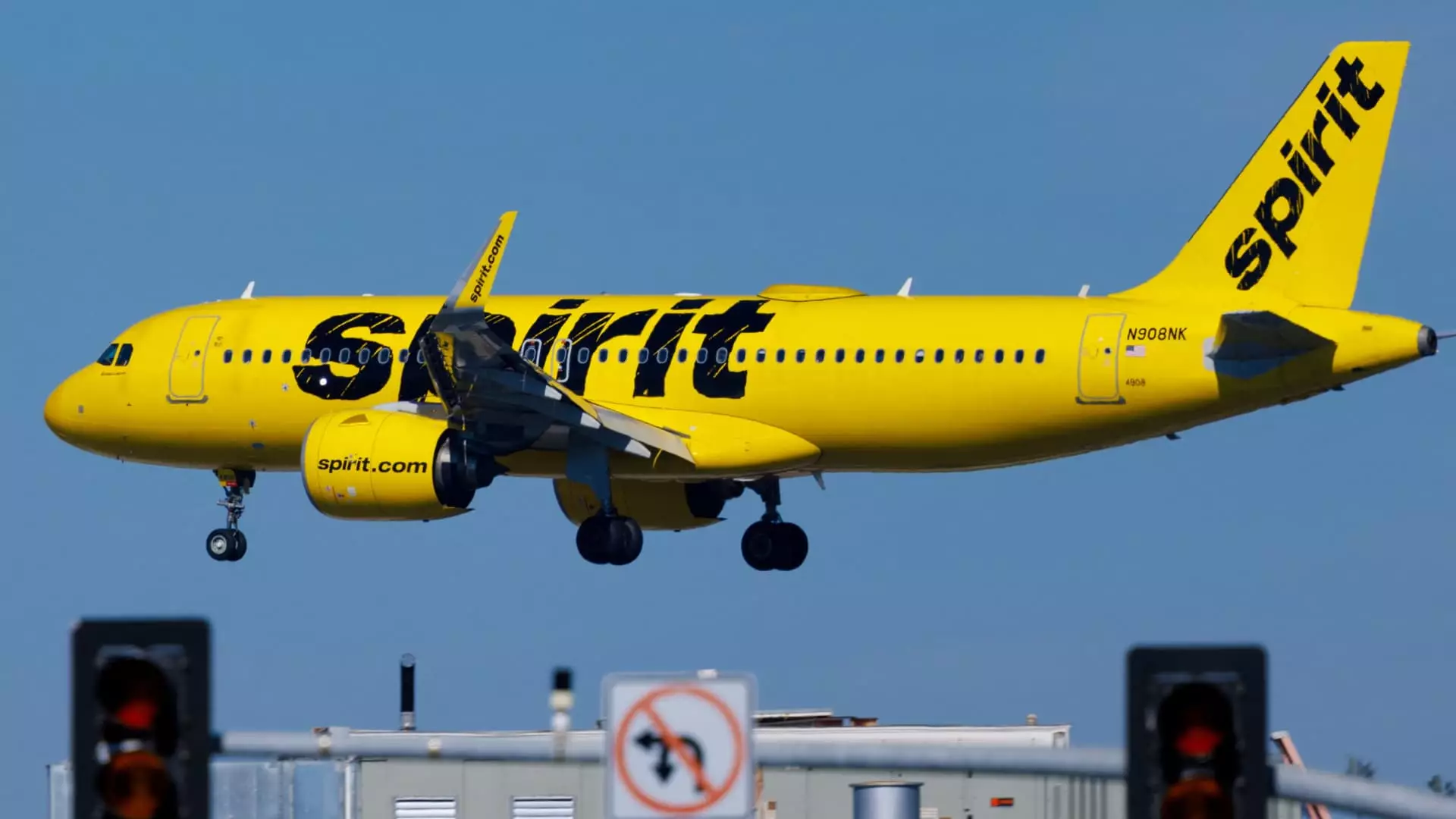Spirit Airlines, known for its budget-friendly approach to air travel in the U.S., made a surprising announcement this week. The Florida-based carrier revealed its plans to introduce new packages for its highest-priced tickets, bundling in perks that were previously available only as add-ons at an extra cost. This strategic move comes as Spirit faces challenges such as a blocked takeover by JetBlue, engine recalls, oversaturation in the domestic market, and stiff competition from larger airlines that cater to both premium and budget-conscious travelers.
Starting next month, Spirit will offer four tiers of service options to its customers. The highest tier, “Go Big,” will include a coveted spot in the airline’s Big Front Seats, known for their spaciousness on Airbus planes. In addition to the upgraded seating, passengers will enjoy complimentary Wi-Fi, a checked bag, cabin luggage, and unlimited snacks and drinks, including alcoholic beverages. The next tier, “Go Comfy,” provides travelers with a seat featuring standard legroom and a blocked middle seat for extra comfort. This package also offers perks such as early boarding, snacks, beverages, and luggage allowances. For those looking for a more streamlined experience, “Go Savvy” fares come with the choice of a checked bag or a carry-on. Finally, the baseline option, “Go,” preserves Spirit’s original stripped-down offering, with the possibility of adding on extras like checked bags, seat selection, and snacks for a fee.
Spirit’s decision to revamp its service categories aligns with its goal of attracting a wider range of customers, including those seeking a premium travel experience. By introducing options that cater to both budget and luxury travelers, the airline aims to expand its market share and compete with industry giants like United. CEO Ted Christie highlighted the importance of retaining customers who may be willing to pay more for additional amenities, a segment that was previously overlooked by Spirit. This shift in strategy reflects a broader trend in the airline industry, with carriers like Southwest Airlines and Frontier Airlines also introducing premium offerings to boost revenue and enhance customer satisfaction.
Despite its ambitious plans, Spirit Airlines faces financial setbacks, including a recent warning of a larger-than-expected loss due to weaker nonticket revenue. The carrier has also raised concerns about potential pilot layoffs in the coming months, signaling ongoing challenges in the post-pandemic recovery phase. Moreover, the competitive landscape in the airline industry remains intense, with rivals constantly innovating and adapting to meet changing consumer preferences. While Spirit’s pivot towards premium services shows promise, the airline must navigate these obstacles strategically to ensure long-term success and sustainable growth.
Spirit Airlines’ decision to offer new service categories represents a significant shift in its business model, signaling a move towards catering to a broader range of traveler preferences. By embracing change and responding to evolving market demands, Spirit demonstrates its commitment to staying relevant in a highly competitive industry. As the airline industry continues to recover from the impact of the pandemic, innovative strategies like those adopted by Spirit will be key to driving growth, attracting new customers, and securing a strong position in the market.

